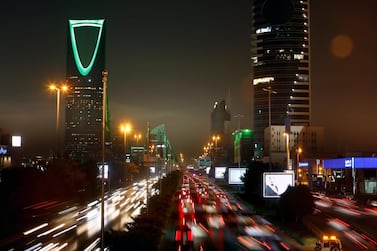Saudi Arabia's non-oil private sector economy remained on a growth footing in December on the back of new orders and increase in employment, according to a report from IHS Markit. However, the rate of growth slowed from a four-year high in November.
The seasonally-adjusted Saudi Arabia Purchasing Managers' Index – a gauge designed to give a snapshot of operating conditions in the non-oil private sector economy – slipped to 56.9 in December, from 58.3 in November. The reading remained well above the 50 level indicating economic expansion, but was the weakest improvement in business conditions for five months.
"The latest Saudi Arabia PMI points to a short-term setback for the non-oil private sector, with growth of business activity and new work slipping since November. However, the survey continues to indicate a much stronger improvement in business conditions than at the same time during 2018, particularly in relation to new order books," Tim Moore, economics associate director at IHS Markit said on Sunday.
Employment numbers increased for the ninth consecutive month across the non-oil private sector with higher levels of staff recruitment partly reflecting rising pressure on business capacity due to backlogs of work at the end of 2019, according to the report.
Input buying also expanded at a robust and accelerated pace last month on the back of new order intakes and efforts to boost inventories. The latest survey indicated one of the strongest rises in stocks of purchases seen over the past two years.
On the price front, input costs increased only marginally during December. The rate of inflation was the slowest for four months, which largely reflected a slower rise in average staff salaries, the report said.
Total new business volumes increased sharply in December, but the pace of expansion moderated from the four-and-a-half year peak seen during November.
"Latest data also suggests that non-oil firms in Saudi Arabia are confident about the outlook for 2020, with business optimism holding at a much higher level than seen in the middle of last year,” said Mr Moore.
Survey respondents cited hopes of an improvement in underlying economic conditions and a corresponding rise in business opportunities for their positivity.
The Institute of International Finance (IIF) in a report last month predicted non-oil growth in Saudi Arabia would remain solid at 2.7 per cent in 2020, driven by further recovery in private sector economic activity, which will be supported by interest rate cuts.







